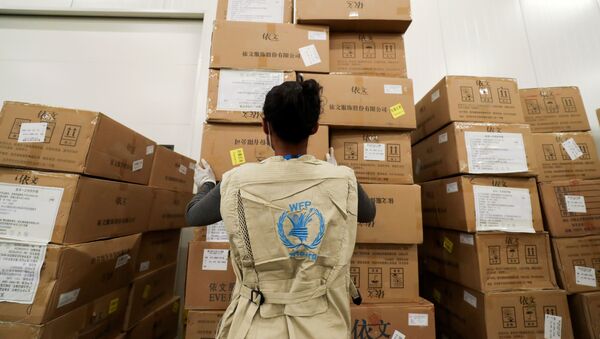"Lately, we have been confronted with obstacles just like those we have been experiencing elsewhere in the world because of COVID-19, including a slow-down in maritime transport and restrictions on movement for our staff. However, we are working closely with the government to find solutions. The import of our supplies has resumed and it is expected to reach pre-COVID levels within the next few weeks," Byrs said.
The spokeswoman argued that the WFP's operations in North Korea would continue amid the pandemic, noting that providing food and nutrition assistance had become critical in the time of the health crisis.
"WFP operations in the country [North Korea] continue and it is even more vital to keep them going during this challenging time. The food and nutrition assistance we provide is critical. They directly address the chronic issues of undernutrition that affect so many children and mothers due to an insufficient intake of essential nutrients such as proteins, vitamins and minerals in their diet," Byrs said.
According to the spokeswoman, due to the pandemic, planting of the summer crops may be delayed in North Korea, which is extremely disaster-prone. In addition, given that climate-related shocks are also on the rise in the country, households may have fewer resources to go around.
"We are entering a period that is characterized by frequent natural disasters, such as drought and floods ... The coming weeks and months are actually a very critical period of time that calls for our uninterrupted assistance to the vulnerable populations," Byrs added.
Byrs continued by emphasizing that the UN food-assistance program had a severe funding shortage that led to reductions in the scope of its work even before the crisis triggered by the pandemic.
"We are asking the international community not to overlook the needs in [North Korea]. The most vulnerable children and mothers need our continued support," the spokeswoman concluded.
In April, the WFP warned that the crisis triggered by the pandemic could generate multiple famines of "biblical proportions" in the world. The UN branch called on the international community to ensure uninterrupted food supplies to the poorest countries, as existing food stockpiles would last only for a few months.
The WFP has said that North Korea was among the 49 countries that faced high risks of poverty and food shortages due to the coronavirus crisis.


